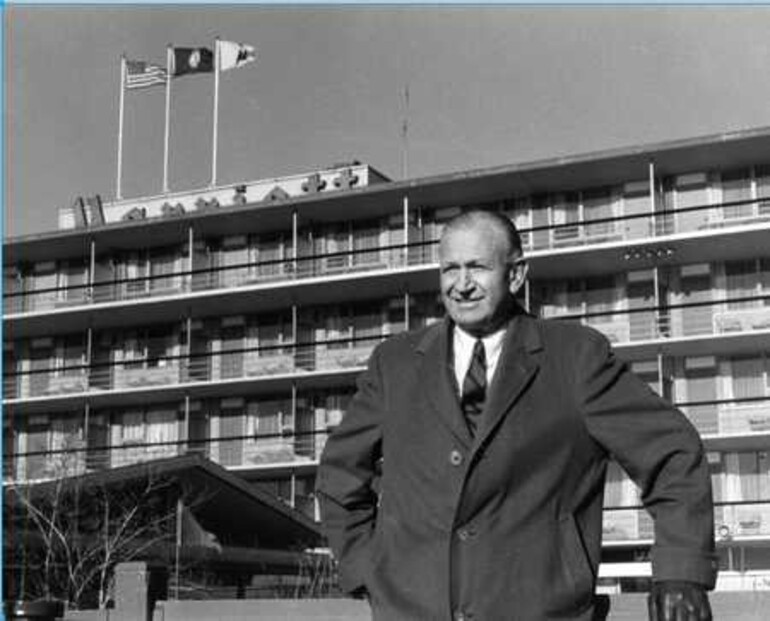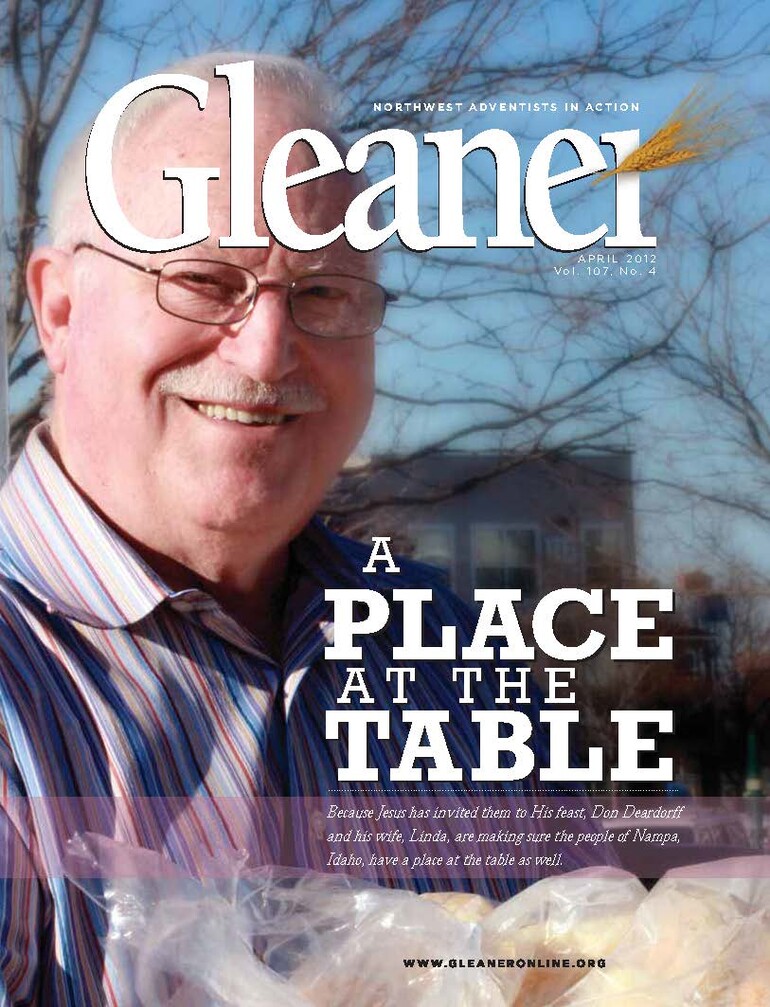He was born to a poor Mormon sheepherder. By age 14, his father trusted him to move sheep between states, and complete tasks daunting to even grown men. Like most Latter-day Saint (LDS) males, he went on a mission. When he returned home, he found his family entirely bankrupt. Quickly, he assessed his only window out of poverty was education. But he had missed so much school, hadn't earned a high-school diploma, and lacked tuition. By sheer wit, he talked his way into community college and agreed to teach theology classes in exchange for tuition.1
He Talked His Way into College
J. Willard "Bill" Marriott then transferred to the University of Utah, and worked his way through college selling woolen underwear to lumberjacks. His marketing was simple: Locate the two "meanest-looking" lumberjacks, dare them to tear the cloth apart; if they couldn't, they had to buy it. Always, the strategy worked.
Nearing graduation, Marriott became mesmerized by A&W root-beer stands. Soon flashbacks of his time traveling through hot, muggy Washington, D.C., while on mission came to mind.4
"So on May 20, 1927 — the day Charles Lindbergh launched his transatlantic flight — Marriott launched a nine-stool, root-beer stand in the nation's capitol."4
Summer heat brought booming business; winter cold halted soda sales. Marriott and his new bride, Alice Sheets, stood to lose everything. What's more they couldn't afford to take the winter off like other stand owners did.
Relying on wits again, Marriott boarded a train and traveled to beg Roy Allen (the A in A&W) for permission to change his menu. ("Hot eats/cool treats" weren't yet the norm.) Simultaneously, Mrs. Marriott befriended the cooks at the nearby Mexican embassy and they loaned her their recipe for spicy tamales.
Rather than yank their shingle down in failure, the two Marriotts reworked the franchise, forming a new display sign1
and served up "warm" foods with root-beer. By day they watched stand, by night they washed syrupy nickels and took them to the bank.
No Detail Too Small
Sloppy at nothing, no detail too small, Marriott watched his holdings from dawn till dusk. Employee uniforms were starched and regulated — down to one's stockings. Equipment was turned upside-down and inspected. Over 300 menu items were scrupulously prepared and monitored. One day Marriott asked for oatmeal and was told his store was out of the item. "Oatmeal is not negotiable!" he told the employee, since it was clearly promised on the menu. An early Marriott trademark depicts a uniformed serviceman, in full sprint ready to serve.
Quickly, one store became two, then three, then four... Before long, the hard-working Mormons were running a "small empire" of Hot Shoppe drive-ins despite the Great Depression around them.
One day an airline passenger stopped at the Hot Shoppe to buy a boxed lunch before flight. Quick-witted again, Marriott began boxing up lunches for travelers. This spotted "gap" in the food market caused him to diversify his food niche within airline catering, cafeterias, and institutional food service."2
Later at the insistence of his son, Marriott hesitantly entered the hotel industry — the hospitality chain which today bears his name.
"Upon his death in 1985, one month short of his 85th birthday, his company had more than 1,400 restaurants and 143 hotels and resorts around the world, which together earned revenues in excess of $4.5 billion."1
Marriott is an international chain today. Additionally, the top-end Ritz-Carlton Hotels are a subsidiary of Marriott International.
According to LDS Church records, Marriott remained the highest tithe-payer within his denomination. He neither drank nor smoke and remained an avid philanthropist throughout his life.
Growing up Marriott
But it is said the Marriotts did not take their success for granted. They taught their children success was NEVER final. In
Spirit to Serve: Marriott's Way, J. Willard Marriott Jr. cites "growing up Marriott" meant while doing a job — any job — "perfection was one notch below the desired result."(1997)3
Marriott principles were exacting. The younger Marriott remembers polishing his father's Sunday shoes for hours in order to pass "grueling inspections." Marriott expected from himself, his employees, and others the highest of standards.
Four principles he lived by were: 1) clean living; 2) hard work and prayer; 3) staying out of debt; and 4) the golden rule. He also believed if he took care of employees, they would take care of customers and the money would take care of itself. His paternalistic policies are studied models of business schools today. These classes always underscore Marriott's "impossibly" high standards and his relentless attention to details.
The driving belief of this former sheepherder from Utah "to stick with any job until it is done right is cited today as the 'recipe' for taking "a small nine-stool root-beer stand in 1927 ... [and turning it] into one of the largest hospitality hotel chains and food services companies in the world."2
Pull quote: "Growing up Marriott" meant while doing a job — any job — "perfection was one notch below the desired result."3
Sources:
1 ^ a, b, c, Carmichael, Evan. "From Sheep to Sodas: The Early Years of J. Willard Marriott." Famous -Entrepreneurs. 2010. Motivation and Strategies for Entrepreneurs Evan Carmichel.com. (April 22, 2010).
2 ^ a, b, "Marriott, J. Willard Marriott." Encyclopedia of World Biography. 2008. Encyclopedia.com. (April 22, 2010).
3 "Marriot Jr. Bio. Growing Up Marriott." J. Willard Marriott Jr. — Biography. 1932/1997. Growing up Marriott. (Web April 2010).
4 ^ a, b, "Marriott Culture - Company Heritage | J. Willard Marriott." Hotel Rooms and Hotel Reservations from Marriott. Web. 19 Jan. 2012.
Cited: "J.W. Marriott - Full Episode - J. Willard Marriott Videos - Biography.com." Famous Biographies & TV Shows - Biography.com. Web. 19 Jan. 2012.










